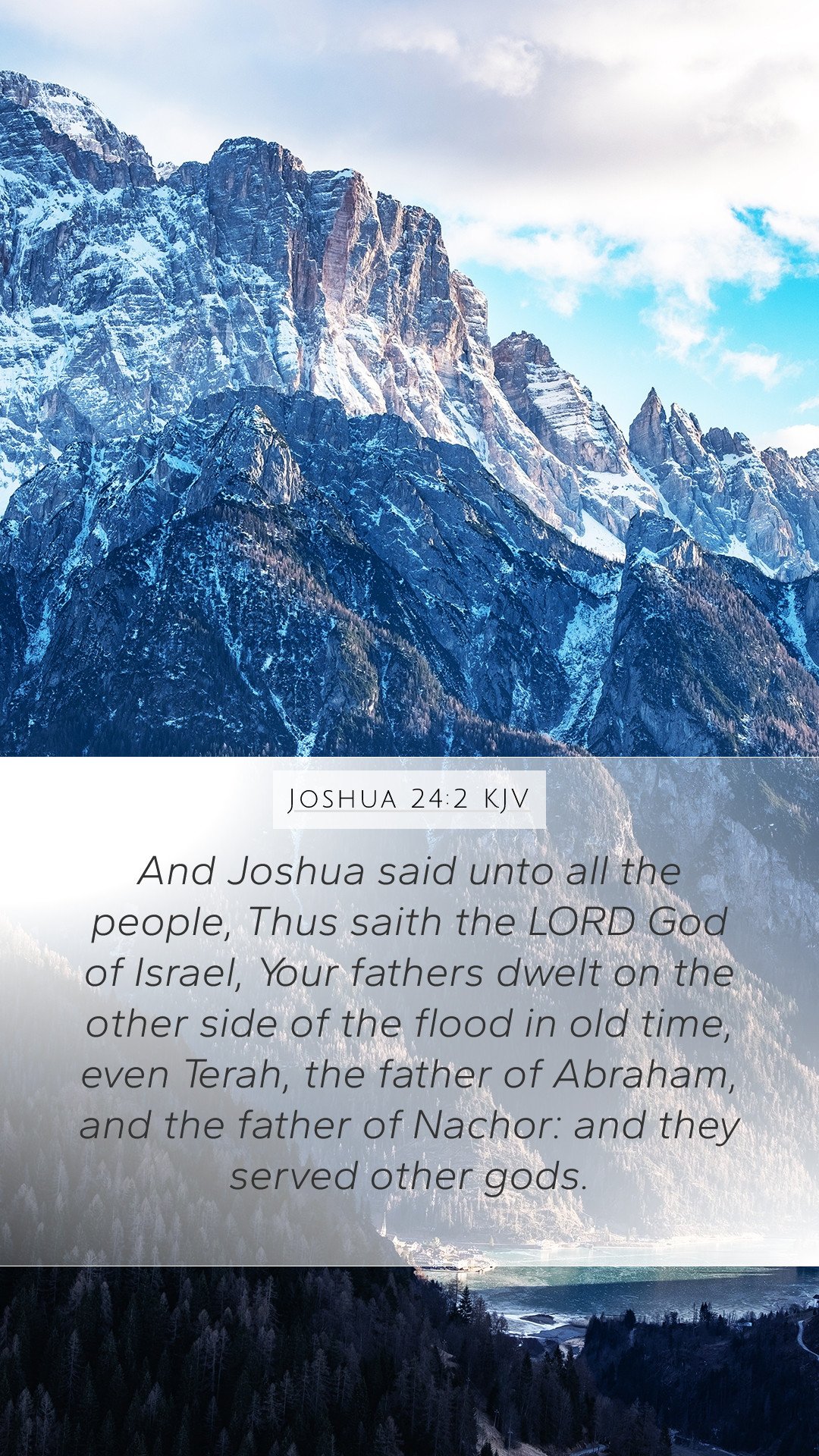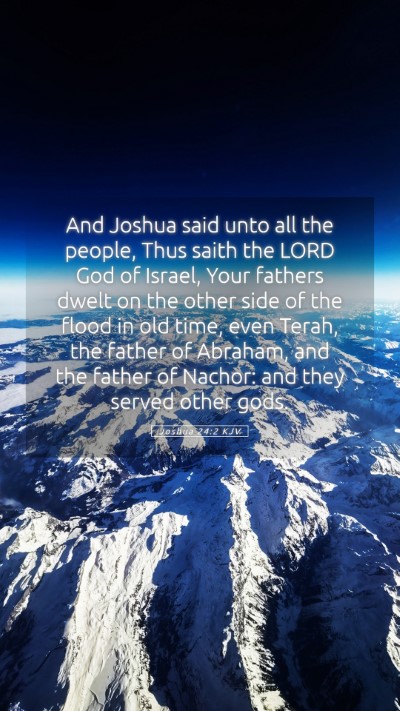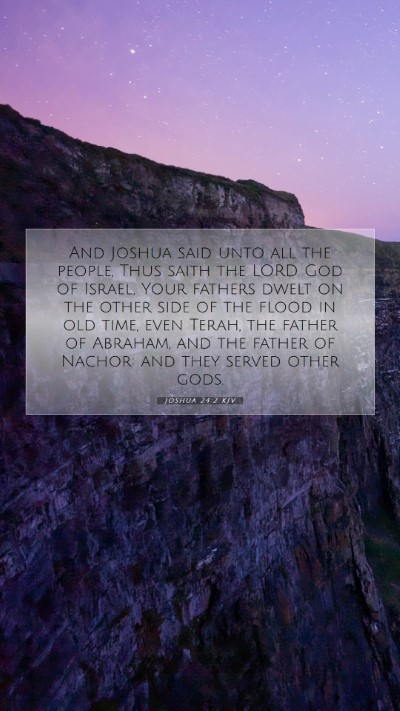Old Testament
Genesis Exodus Leviticus Numbers Deuteronomy Joshua Judges Ruth 1 Samuel 2 Samuel 1 Kings 2 Kings 1 Chronicles 2 Chronicles Ezra Nehemiah Esther Job Psalms Proverbs Ecclesiastes Song of Solomon Isaiah Jeremiah Lamentations Ezekiel Daniel Hosea Joel Amos Obadiah Jonah Micah Nahum Habakkuk Zephaniah Haggai Zechariah MalachiVerse
Joshua 24:1 Joshua 24:2 Joshua 24:3 Joshua 24:4 Joshua 24:5 Joshua 24:6 Joshua 24:7 Joshua 24:8 Joshua 24:9 Joshua 24:10 Joshua 24:11 Joshua 24:12 Joshua 24:13 Joshua 24:14 Joshua 24:15 Joshua 24:16 Joshua 24:17 Joshua 24:18 Joshua 24:19 Joshua 24:20 Joshua 24:21 Joshua 24:22 Joshua 24:23 Joshua 24:24 Joshua 24:25 Joshua 24:26 Joshua 24:27 Joshua 24:28 Joshua 24:29 Joshua 24:30 Joshua 24:31 Joshua 24:32 Joshua 24:33

